News Release: Woods Hole Sea Grant Launches $1.5 Million in Coastal Research Projects for 2022-2023
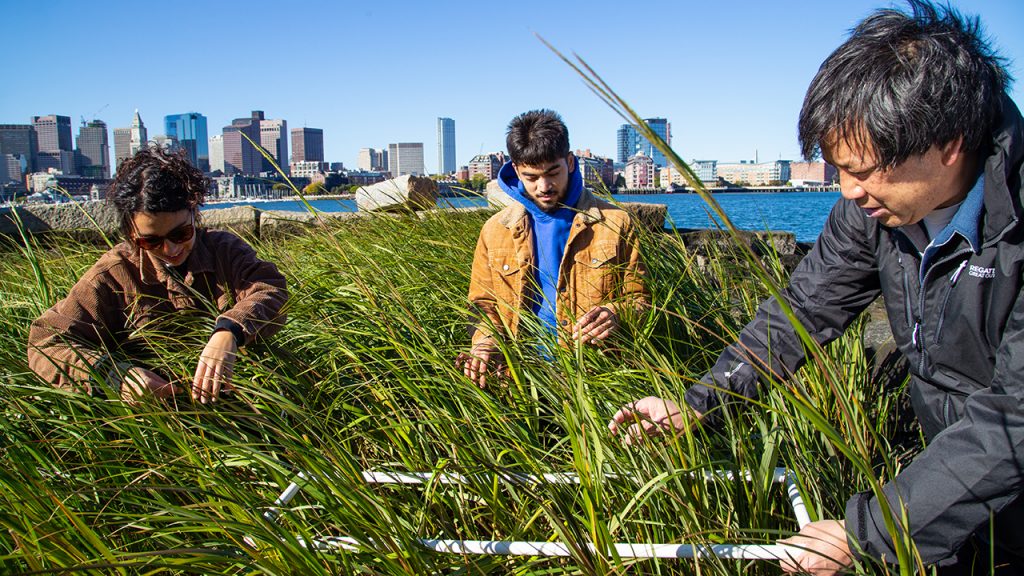
(Woods Hole, MA) - The Woods Hole Sea Grant program has awarded researchers from Massachusetts funds to support five new projects addressing an array of pressing coastal issues.
The funded projects focus on economically and environmentally important issues in the Massachusetts coastal environment, including mortality of striped bass in the recreational fishery, the design of sustainable shorelines using traditional ecological knowledge, aquaculture grow-out methods, barnacle biofouling on oyster farms, and hypoxia in Cape Cod Bay.
"Woods Hole Sea Grant prides itself on supporting the research needs of communities in Massachusetts," says Woods Hole Sea Grant (WHSG) Director Matt Charette. "Each funding cycle, our research priorities are developed through surveys of impacted communities in the Commonwealth, allowing us to nimbly respond to and prioritize important emerging coastal issues.”
Each funded project includes a plan to share their findings with those impacted communities, ensuring that WHSG-funded research results are provided to those who will directly benefit from the newly gained knowledge.
There are five two-year awards representing a total anticipated research investment of over $1.5 million through a combination of federal and non-federal matching sources. The 2022-2023 research projects are:
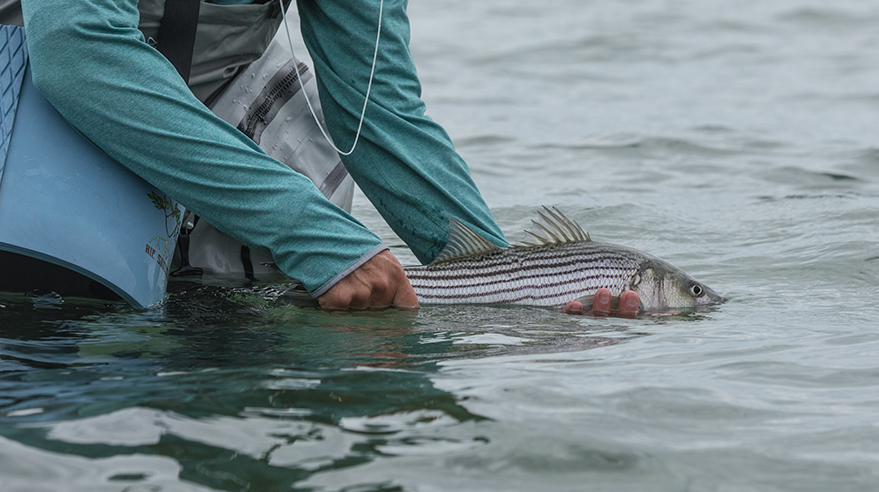
Stripers on the Line: Quantifying short-term post-release activity, behavior and mortality of striped bass (Morone saxatilis) in the Massachusetts recreational fishery
Striped bass is one of the most popular and valuable recreational fisheries along the United States East Coast. Recent estimates suggest that in Massachusetts, more than half of all recreational sportfishing is for striped bass, and nearly 95 percent of striped bass caught are released, yet little is known about the fate of fish after release. Working in partnership with recreational anglers, Drs. Andy Danylchuk and Lucas Griffin of the University of Massachusetts Amherst will quantify the short-term activity patterns, behavior, and mortality of striped bass across a range of angling techniques, environmental settings, and life history stages.
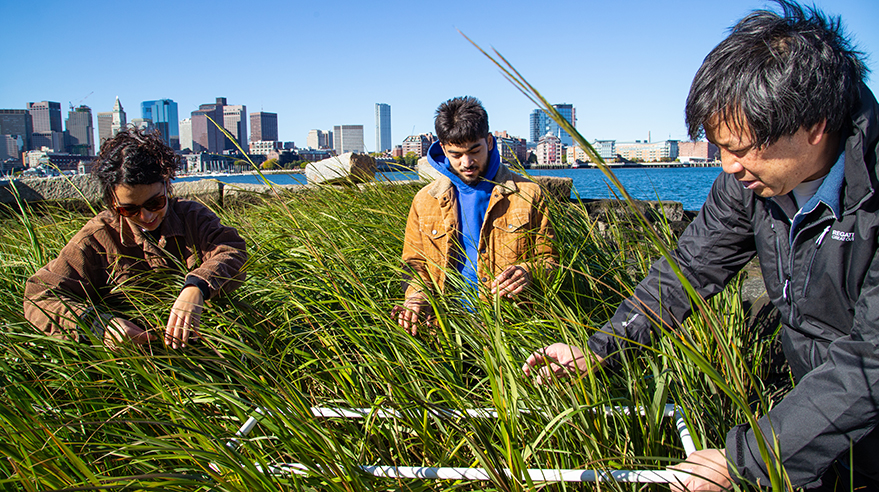
Traditional Ecological Art & Science: Designing sustainable shorelines
Coastal communities in Massachusetts are vulnerable to sea level rise, flooding, and increasingly frequent and intense nor’easters, yet still struggle to establish robust, sustainable, and equitable management solutions. For millennia, traditional ecological knowledge approaches have allowed indigenous communities to maintain a sustainable relationship with their coastal environment. Drs. Robert Chen of University of Massachusetts Boston, Lois Hetland of Massachusetts College of Design, and Cedric Woods of the Institute for New England Native American Studies will lead a team designing sustainable shorelines that incorporate local traditional ecological knowledge as well as art, design, and science, with a special focus on supporting youth participation in the process.
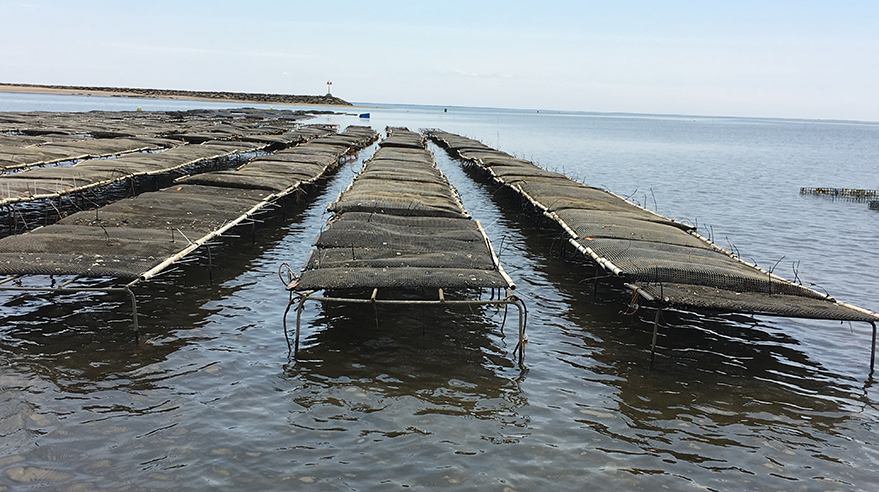
Determining How Aquaculture Grow-Out Methods Can Reduce the Negative Effects of Parasites and Micropollutants
Oyster aquaculture is an economically important industry in Massachusetts where landings have exceeded $30 million in recent years. However, environmental pollutants and oyster parasites can be critical challenges to oyster growers, and the potential interactions between these two stressors are not well known. Dr. Torrance Hanley of Northeastern University and collaborators will assess how different aquaculture farming methods (e.g., on-bottom vs. floating) affect the prevalence and intensity of oyster parasites and water micropollutant exposure to help growers minimize negative impacts on their business operations.
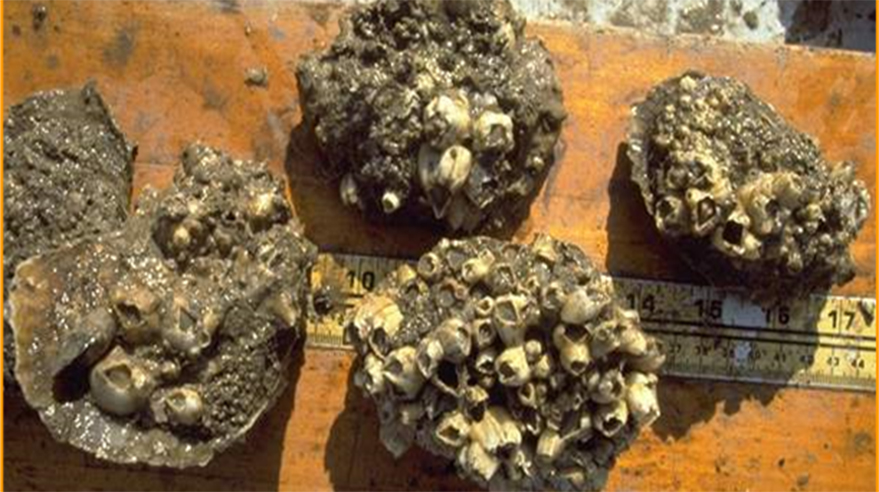
Barnacle Biofouling on Oyster Farms: Species-specific seasonal timing and population connectivity
Biofouling of farmed shellfish and equipment by barnacles can result in substantial reductions in oyster farm productivity through reduced oyster growth, increased oyster death, physical damage, and increased equipment weight. In this project, Drs. Jesús Pineda and Carolyn Tepolt, and graduate student Jane Weinstock of the Woods Hole Oceanographic Institution will collaborate with oyster farmers to measure the species, timing and extent of barnacle biofouling on Cape Cod, assess population connectivity of species with short and long larval durations in Massachusetts and Maine, and investigate whether the timing and extent of biofouling is changing in response to ocean warming.
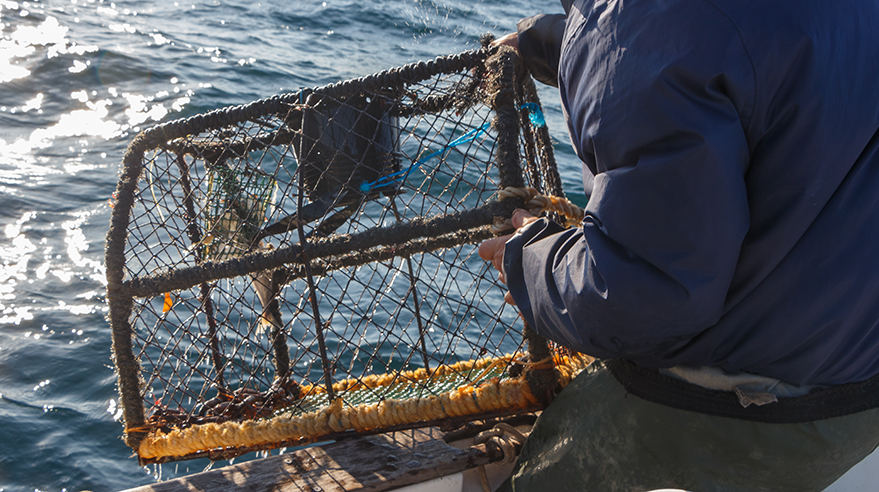
Modeling Unprecedented Low Dissolved Oxygen (Hypoxia) in Southern Cape Cod Bay
Bottom waters in southern Cape Cod Bay experienced severely low dissolved oxygen in the late summer of both 2019 and 2020, the first time that these conditions have ever been documented in the region. This hypoxia led to fish and shellfish kills that were reported by the local commercial fishing community. Woods Hole Oceanographic Institution scientists Drs. Malcom Scully and Rocky Geyer will investigate the causes of this phenomenon using a model to simulate the interactions between physical and biological processes that result in hypoxia.
"As a strong supporter of the Woods Hole Sea Grant program, I am excited to see the newest round of funded projects, the findings of which will improve our understanding of our coastal environment and communities," said Congressman Bill Keating. "This round of grants focuses on several industries that play an important role in the economy of the Ninth District, including aquaculture and commercial and recreational fishing. The addition of a research project on sustainable coastlines will pay dividends for years to come as more and more coastal municipalities and homeowners contend with more frequent extreme weather events. Through the research conducted by these scientists, we will progress towards solutions that will make our communities safer and will lead to innovations that will propel our Blue Economy into the 21st century and beyond."
About Woods Hole Sea Grant
Based at Woods Hole Oceanographic Institution, the Woods Hole Sea Grant program encourages environmental stewardship, long-term economic development, and responsible use of the nation’s coastal and ocean resources. The program supports research and education, and an extension program in collaboration with the Cape Cod Cooperative Extension. It is part of the NOAA-funded National Sea Grant College Program, a network of 34 individual programs located in each of the coastal and Great Lakes states. More information can be found at seagrant.whoi.edu.
Media Contact:
Stephanie Murphy (she/her)
Woods Hole Sea Grant Communications Specialist
Woods Hole Oceanographic Institution
samurphy@whoi.edu | 508.566.3055
